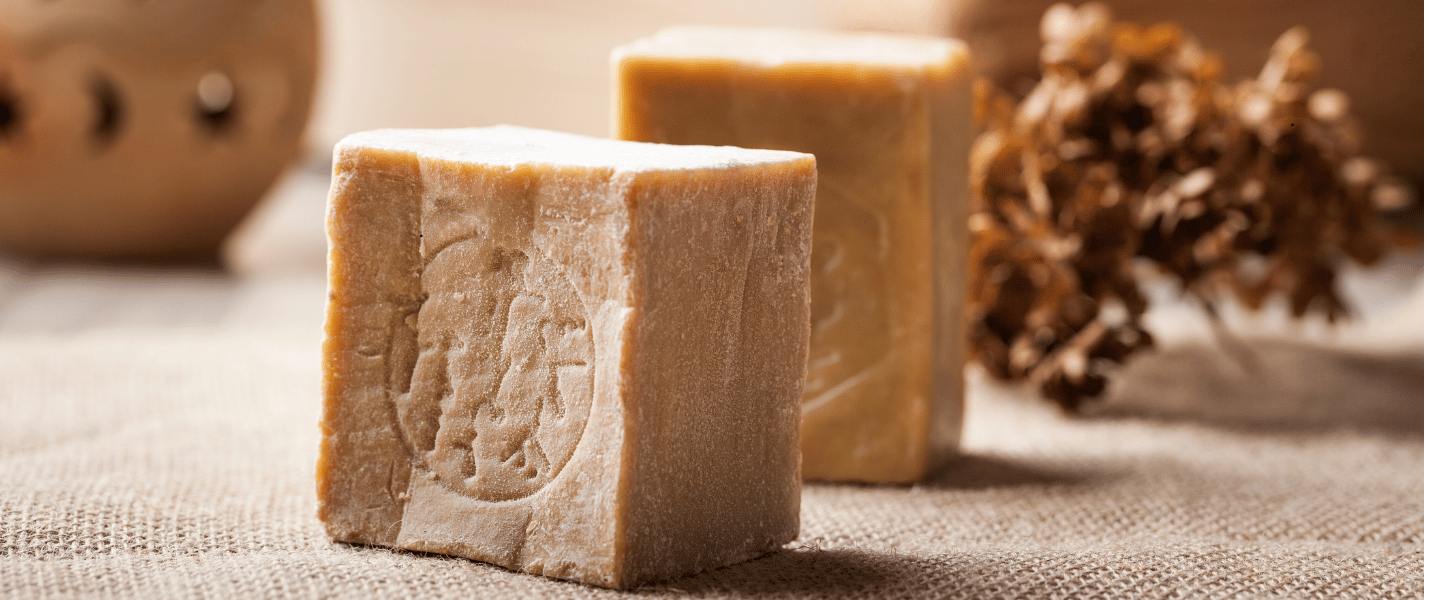Aleppo soap, often regarded as the world’s oldest soap, carries a rich legacy that traces back to ancient Syria. Renowned for its simplicity, purity, and skin-soothing properties, this soap has transcended centuries, earning its place as a beloved skincare staple worldwide. In this article, we delve into the fascinating history of Aleppo soap, its unique crafting process, and its timeless appeal.
Origins in Ancient Aleppo
Aleppo soap was born over 2,000 years ago in the historic city of Aleppo, located in present-day Syria. Often considered the cradle of soap-making, Aleppo introduced the world to this natural cleansing bar long before modern soaps existed. The recipe, passed down through generations, is a testament to the ingenuity and resourcefulness of early Syrian artisans.
Crafted from just a few natural ingredients—olive oil, laurel oil, water, and lye—Aleppo soap exemplifies simplicity at its finest. This formula has remained largely unchanged for centuries, preserving its authenticity and cultural significance.
The Art of Aleppo Soap-Making
The traditional process of making Aleppo soap is as unique as its history. Master soap-makers combine olive oil and lye to form a paste, which is then cooked for days in large cauldrons. Near the end of the cooking process, laurel oil is added, giving the soap its signature fragrance and antibacterial properties.
The soap is then poured into molds, cut by hand, and stamped with a seal of authenticity. Unlike modern soaps, Aleppo soap undergoes an aging process lasting 6 to 12 months. During this time, the soap hardens, turning its exterior a golden beige while retaining a rich green color inside.
A Soap with Cultural and Medicinal Roots
Beyond its cleansing properties, Aleppo soap has long been valued for its medicinal benefits. The laurel oil in the soap is known for its antiseptic, anti-inflammatory, and antimicrobial properties, making it a natural remedy for various skin conditions, including eczema, psoriasis, and acne.
In ancient times, Aleppo soap was a luxury item traded along the Silk Road, reaching far-off regions like Europe and Asia. Its reputation as a gentle yet effective soap made it a prized possession among royalty and nobility.
Why Aleppo Soap Remains Relevant Today
Despite the advent of mass-produced soaps, Aleppo soap has stood the test of time. Its commitment to natural, chemical-free ingredients resonates with modern consumers seeking sustainable and eco-friendly skincare solutions.
For individuals with sensitive skin, the soap’s minimalistic ingredients make it a go-to choice. The absence of synthetic additives, fragrances, and preservatives ensures a gentle cleansing experience that nourishes the skin without causing irritation.
Conclusion
Aleppo soap is more than just a bar of soap; it is a piece of living history. With its origins rooted in ancient Syria and its craftsmanship preserved through centuries, this soap continues to captivate the world with its natural goodness and cultural significance.
Whether you’re drawn to its historical allure, its skin-soothing benefits, or its eco-friendly ethos, Aleppo soap is a timeless treasure that deserves a place in your skincare routine.
By incorporating Aleppo soap into your life, you’re not just embracing a skincare product; you’re connecting with a centuries-old tradition that celebrates the harmony of nature and human ingenuity.
Find out more about our Aleppo Soap Series.



















